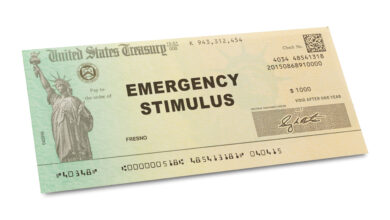As Americans prepare to send their children back to school, COVID-19 cases are at the highest levels that they have been in the last six months in most areas of the nation. What does this mean for the return to in-person learning? Here is the latest on the ongoing pandemic.
While most people agree that the pandemic should not be politicized, the issue of masks in school has become increasingly divided along party lines. Many of the largest school districts in Florida, Arizona, and Texas are speaking out against their state’s Republican governors and defying the ban of school mask mandates.
With no national governing policy regarding masks in the schools, it has been up to the individual states to decide whether or not to mandate face coverings in a school setting. While some states have required masks in indoor settings, other states have tried to prevent school districts from mandating their use. As a result, some of the more urban districts are attempting to apply their own mandates.
This disconnect has inevitably led to conflict between the state lawmakers and the district administrators. The conflict has landed in courtrooms in some cases. Thus far, most of the judges have ruled in favor of the school districts to mandate masks. However, it is often difficult for schools to enforce this compliance.
DeSantis at Center of Storm
Florida Gov. Ron DeSantis has been at the center of the argument over masks in schools. After prohibiting districts from mandating the masks, many administrators took it upon themselves to require that their students mask up in the classroom.
DeSantis responded by threatening to withhold the pay of these school administrators and pull state funding from the district if they do not comply with this order. However, US Department of Education Secretary Miguel Cardona said late last week that he would use federal funding to provide the districts and educators with the money that they need.
Pfizer Submits Data Regarding Booster Shot
Pfizer and BioNTech announced on Monday that they have submitted data to the US Food and Drug Administration (FDA) detailing the research supporting a booster shot for its COVID-19 vaccine. The company said that the third shot of the vaccine delivers a substantially higher antibody response versus what two doses provide.
The research also supports the company’s assertion that the vaccine provides strong protection against both the Delta and Beta variants. As such, the company recommends a booster dose given within 6 to 12 months after the initial two shots.
According to Dr. Ugur Sahin, BioNTech CEO and co-founder, the booster could help to lower the rate of infections and disease while helping to mitigate the spread of the virus.
While Pfizer has indicated that a third booster dose will be necessary for many Americans in the near future, US officials have repeatedly said their data does not demonstrate the need for this shot yet.
FDA Authorizes Booster for the Immunocompromised
The FDA authorized the use of a third shot for the immunocompromised last week, opening the door for millions of the most vulnerable Americans to receive more protection. The FDA made this decision after looking at data that demonstrated that the initial two doses were likely not enough protection for those with compromised immune systems.
Shortly after the FDA authorized the third shot for this population, the US Centers for Disease Control and Prevention (CDC) also voted to recommend the third dose. The CDC also released a set of eligibility guidelines. The shots are now available for those who qualify.
Government and health officials will also be reviewing the guidelines about when to recommend boosters shots for other populations. For example, the CDC is examining when the elderly should be eligible for a third shot. The goal is to roll out a vaccination booster shot schedule by the end of September.
US COVID-19 Cases Continue to Surge
As of Saturday, the US was averaging nearly 130,000 daily cases of confirmed COVID-19. This number is surging as the Delta variant continues to spread at a breakneck speed, especially among unvaccinated adults and children too young to receive the vaccine.
On Sunday, the National Institutes of Health director, Dr. Francis Collins, predicted that this number may hit 200,000 cases per day within the next few weeks. There are still roughly 90 million Americans that have not been vaccinated, giving the virus plenty of hosts to spread and multiply.
To put the 200,000 number in perspective, this was the number of cases seen in January when the vaccine was only available to a small group of people. The rate at which the virus is spreading is another indicator of the virility of the Delta variant.
According to recent data from the CDC, 50.7% of the total US population has been fully vaccinated. This number represents almost 60% of those eligible to get the shot.
Hospitalizations Surge Along with Cases
When looking at the COVID-19 case numbers, it is no surprise to learn that hospitalizations are also on the rise. According to the US Department of Health and Human Services (HHS), over 2,500 new hospitalizations due to COVID-19 were recorded each day over the last week. At this rate, the number will eclipse the January high in approximately one month.
For example, both Louisiana and Florida are reporting record numbers of new COVID-19 hospitalization admission rates. Mississippi and Arkansas are nearing their peak numbers of hospitalizations during the pandemic. Even highly vaccinated states such as Oregon and Washington are closing in on over 75% of their peak hospitalization rates.
The difference between this surge and previous surges is that the new wave of patients tends to skew younger than ever before. This is because the older populations have higher vaccination rates.






